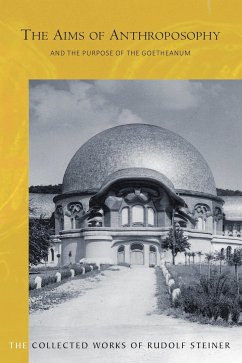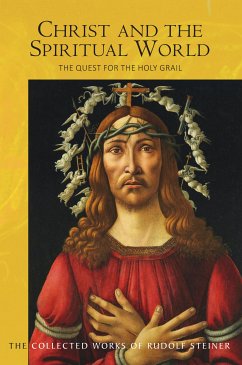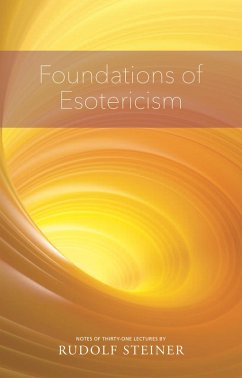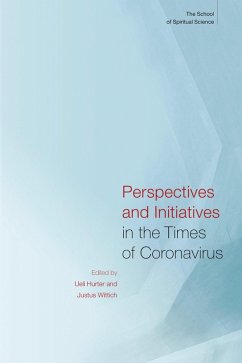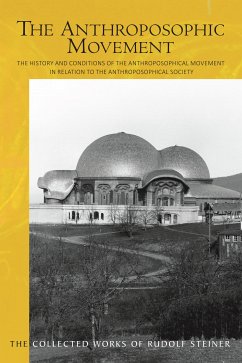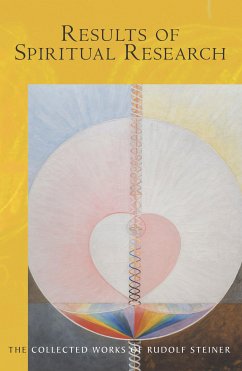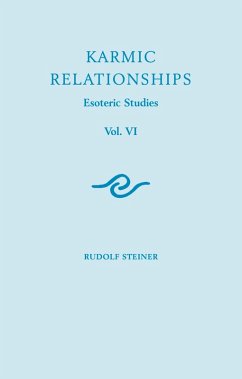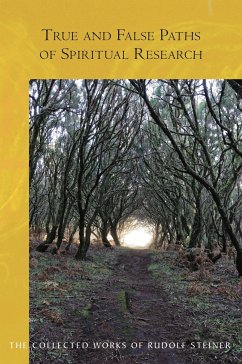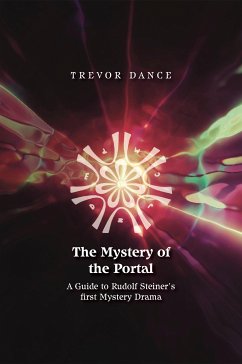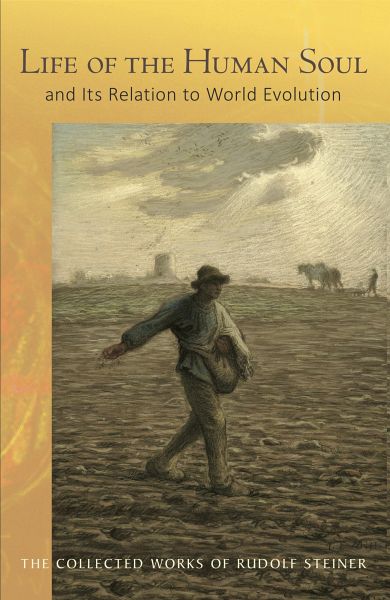
LIFE OF THE HUMAN SOUL (eBook, ePUB)
and its Relation to World Evolution
Übersetzer: Barton, M.
Versandkostenfrei!
Sofort per Download lieferbar
13,19 €
inkl. MwSt.
Weitere Ausgaben:

PAYBACK Punkte
0 °P sammeln!
How are we connected to the world around us? This question, says Rudolf Steiner, is one that lives subliminally, drawing us into the depths of the psyche. There, our candle of consciousness tends to flicker and go out. But spiritual schooling can relight it, so that we learn to perceive realms of our being beyond the restricted self.Whilst Steiner was undertaking major lecture tours of Germany and England, he took time to address his followers at the world centre of anthroposophy in Dornach, Switzerland. He speaks here on three major topics: 'The Life of the Human Soul', 'Spiritual Striving in...
How are we connected to the world around us? This question, says Rudolf Steiner, is one that lives subliminally, drawing us into the depths of the psyche. There, our candle of consciousness tends to flicker and go out. But spiritual schooling can relight it, so that we learn to perceive realms of our being beyond the restricted self.Whilst Steiner was undertaking major lecture tours of Germany and England, he took time to address his followers at the world centre of anthroposophy in Dornach, Switzerland. He speaks here on three major topics: 'The Life of the Human Soul', 'Spiritual Striving in Relation to Earth's Evolution' and 'The Contrast Between East and West'. The common theme, however, is our mutual responsibility for what the human being and the world will eventually become - which, according to Steiner, is far from a foregone conclusion. Even the way we think can change and affect the future: the degree, for example, to which we concentrate our picturing in meditation, infusing head thinking with warmth of heart.Rudolf Steiner reveals a hugely complex picture of interrelationships between humanity and the cosmos. Our head, heart, lungs and limbs all reveal subtly different qualities of connection with the invisible realities that continue to sustain us. Our eyes, for instance, only gradually evolved into organs of sight and were once vital organs, as our lungs are now. The lungs, in turn, will similarly evolve to provide us with another form of perception.As is usually the case, Steiner addresses a wide variety of topics in addition to those above. Included in this volume are thoughts on the significance of the cinema; the nature of the halo; technology as the 'true foundation' of the modern worldview; asceticism in the Middle Ages; the world of machines and the world of rite and worship; yoga and modern meditation exercises; pain as an awakener of knowledge; the emergence of the belief in ghosts; and the connection between stomach acid and soul qualities.
Dieser Download kann aus rechtlichen Gründen nur mit Rechnungsadresse in A, B, BG, CY, CZ, D, DK, EW, E, FIN, F, GR, H, IRL, I, LT, L, LR, M, NL, PL, P, R, S, SLO, SK ausgeliefert werden.





